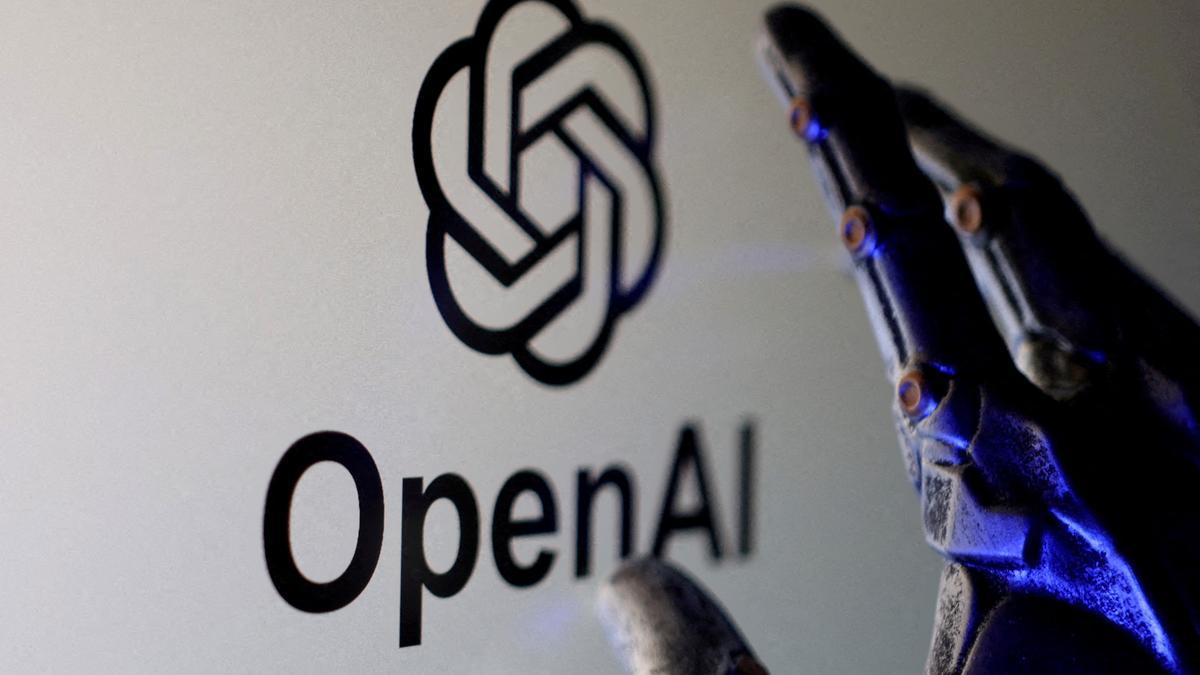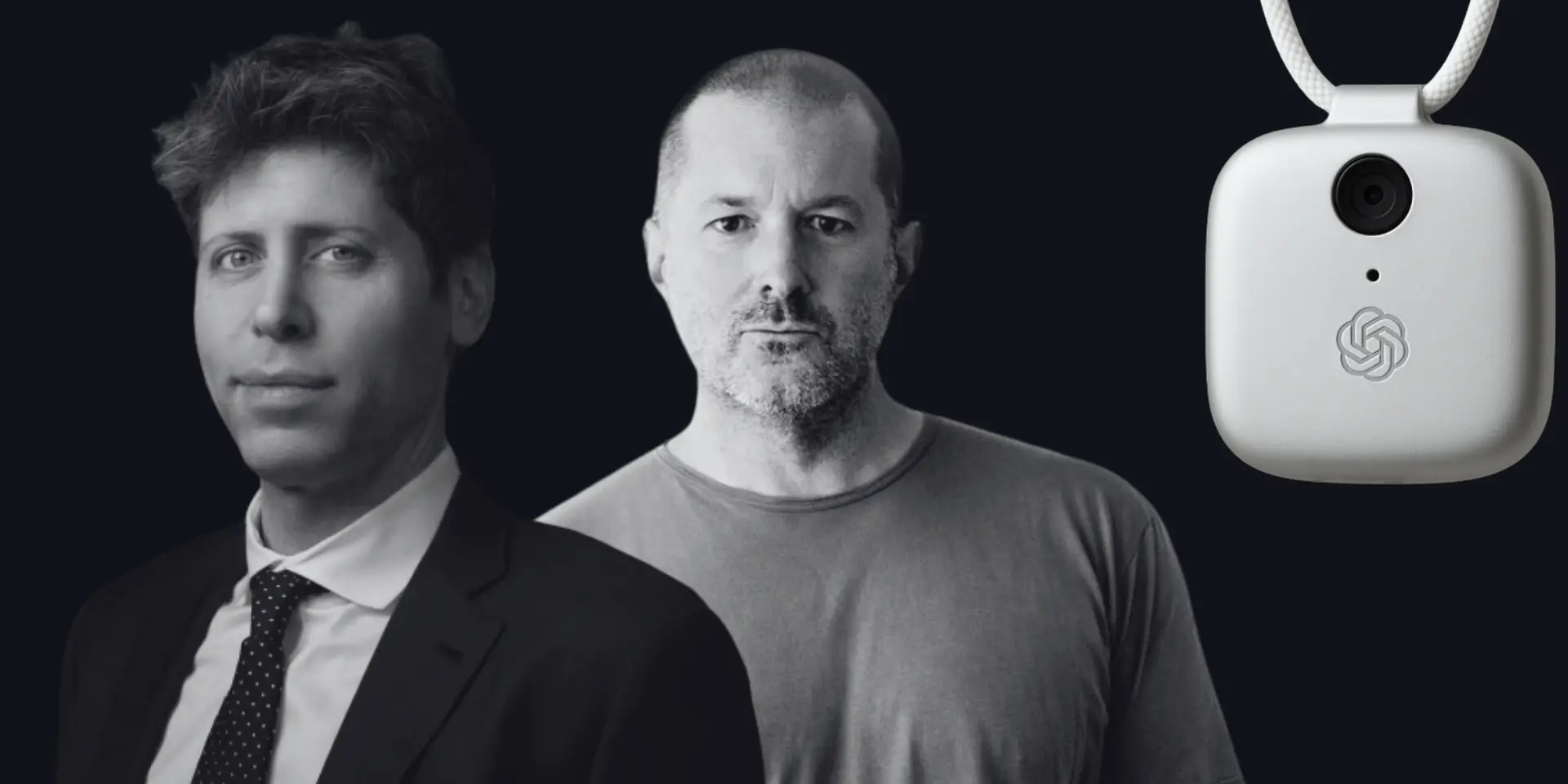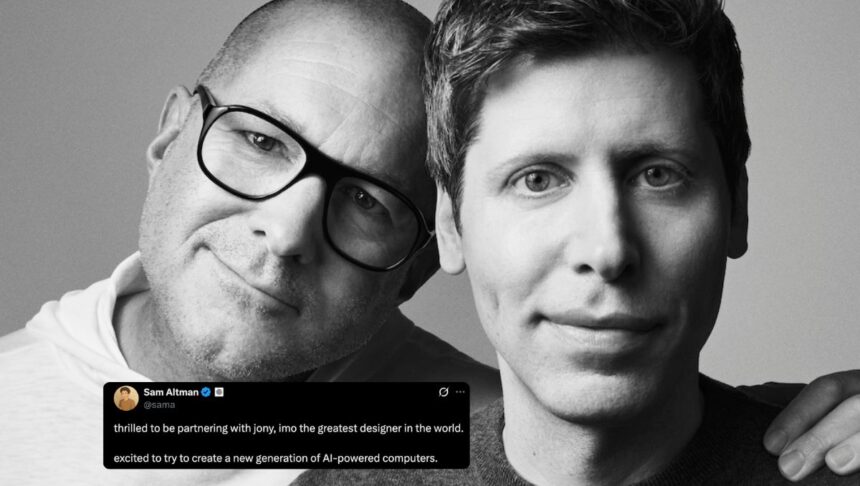Introduction
The much-speculated collaboration between OpenAI Jony Ive AI device CEO Sam Altman and legendary Apple designer Jony Ive has taken an unexpected turn. Court filings now confirm that the mysterious AI-powered hardware device they are developing is not a wearable. This revelation comes amidst an ongoing trademark dispute with Google-backed startup iyO, which had accused OpenAI’s venture (previously called “io”) of infringing on its brand identity.
OpenAI and Jony Ive’s Secret AI Project Explained

Ever since the partnership was announced, the tech community has been buzzing about what form this AI device would take. Many speculated it could be an in-ear device, wearable headset, or advanced AI earphones due to the surging popularity of AI-powered personal assistants.
However, new court documents have revealed that this is not the case. Tang Tan, co-founder and Chief Hardware Officer at io Products (the venture involving OpenAI and Jony Ive), has clarified that their device is neither an in-ear device nor any form of wearable hardware. Instead, Altman had earlier described it as a potential “third core device” alongside smartphones and computers that users might keep on their desks — a subtle hint at a stationary AI assistant or new category of desk-based AI hardware.
The Trademark Dispute: OpenAI vs Google-Backed iyO
The dispute began when iyO — a startup spun out of Google’s Moonshot Factory — filed a trademark complaint against OpenAI’s use of the name “io.” According to reports, iyO alleged that their technology was being copied and cited meetings where OpenAI executives had seen iyO’s AI-powered in-ear device prototype during demo sessions OpenAI Jony Ive AI device.
In response, OpenAI and io Products removed all branding associated with “io” from their websites, videos, and announcements. OpenAI firmly stated: “We don’t agree with the complaint and are reviewing our options.”
What the Court Filing Reveals

In a detailed 26-page court filing, Tang Tan emphasized:
- The prototype shown by Sam Altman is not an in-ear device.
- The AI device is not wearable in any form.
- The company has no plans to sell any product for at least another year.
Altman had also reportedly told staff internally that the device would not be something that people wear, hinting instead at a novel form of AI integration into daily environments without being physically attached to users OpenAI Jony Ive AI device.
Launch Timeline Pushed Beyond 2026
With legal disputes and ongoing product development, OpenAI’s AI device launch is not expected before 2026. The additional time may allow the team to fully develop their ambitious AI hardware while resolving the ongoing trademark issues with iyO.
Interestingly, the filing also disclosed that OpenAI’s hardware team had acquired over 30 different headphone models to analyze market trends — though they downplayed the connection to iyO’s allegations by explaining that such market research was standard for any hardware development.
Speculation Grows Around the Nature of the Device
Even though the wearable rumor has been debunked, speculation still swirls about what exactly the device will be. Some possible scenarios include:
- A desktop AI hub that serves as a personal assistant
- A smart speaker-type device with advanced conversational AI
- A new category of AI interface combining ambient computing and natural language processing
The joint involvement of Jony Ive, known for his design mastery, and Sam Altman, a leader in AI, hints that this device could blend groundbreaking AI capabilities with Apple-level product design — potentially setting a new standard for AI hardware.
AI Hardware: The New Frontier
While AI software innovations like ChatGPT, Gemini, and Claude dominate headlines, the race for dedicated AI hardware devices is heating up. Companies like Microsoft, Humane, Rabbit R1, and Meta have all entered the arena with hardware that integrates real-time AI capabilities.
If successful, OpenAI and Jony Ive’s device could potentially redefine how humans interact with AI outside of mobile phones, making AI more accessible, intuitive, and seamlessly integrated into daily life.
Conclusion
The latest revelation from court filings finally clarifies one thing — OpenAI and Jony Ive’s first hardware project will not be a wearable. While the exact nature of the device remains a mystery, expectations are sky-high for this potential game-changer in AI hardware. With a projected launch sometime in 2026, the tech world will continue to watch closely as this innovative collaboration unfolds.
Stay tuned for more updates as new details emerge about what could be one of the most disruptive AI devices of the decade.

Related News
Image










